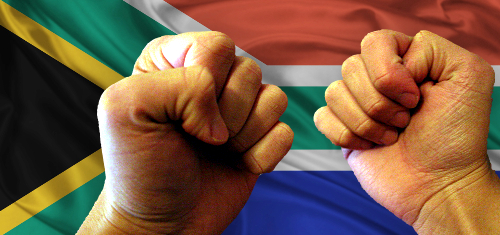 South Africa wants to give government agencies new powers to combat illegal online gambling.
South Africa wants to give government agencies new powers to combat illegal online gambling.
Last week, South Africa’s Department of Trade and Industry released the final version of its National Gambling Policy 2016. The policy paper bluntly states that “no new forms of gambling will be allowed at this point,” dashing any faint hopes operators may have had regarding a potential liberalization of the country’s online gambling market.
The policy paper argues that online gambling is “not inherently labor intensive” and thus the government remains skeptical that legalizing online gambling will “produce significant jobs compared to other regulated activities like casinos.” The government also believes it’s important to “protect gambling activities that create jobs from unwarranted competition.”
South Africa currently permits online sports betting while forbidding online casino, poker and other verticals. Despite the prevalence of online sports betting, the policy paper reiterates the government’s previous position that “the capacity to regulate online gambling currently is not adequate, but can be streamlined to prevent illegal operations.”
Among these proposed streamlines are amendments to the National Gambling Act to prohibit internet service providers from allowing access to illegal gambling sites, while banks and other financial institutions would be prohibited from processing online gambling payments.
The government plans to reposition the National Gambling Board as the National Gambling Regulator (NGR), which must be “vigilant in alerting” banks and ISPs of illegal online operations. If notification by the NGR fails to result in the appropriate response by banks and ISPs, these institutions “should be criminally liable.”
The paper complains that South Africa’s overburdened police and court resources leads to illegal gambling offences “not receiving the necessary attention.” The paper calls on the NGR and provincial licensing authorities to “improve the inspectorate capacity” to ensure better collection of evidence to present to prosecutors.
However, the paper also suggests a “last resort” alternative that would see the establishment of an independent tribunal to prioritize enforcement of illegal gambling penalties. Funding for this tribunal could come from a combination of government, levies on domestic gambling operators and the fines collected from illegal operators, as well as from fines imposed on ISPs and banks caught flouting the restrictions.
Should South African punters manage to elude detection and gamble with an unauthorized online operator, the government proposes that all online gambling winnings be confiscated and paid into the Unlawful Winnings Trust. At present, seizing winnings requires a High Court order, but the paper proposes striking this requirement so long as the NGR can demonstrate the illegality of gambling activity.






